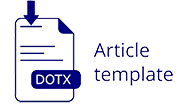APPLICATION OF THE MODEL INQUIRY LEARNING FOR EFFORTS TO IMPROVE ENGLISH LEARNING ACHIEVEMENT (A Case Study in Class XII IPA-3 MAN 2 Students in Odd Semester Academic Year 2019/2020)
Abstract
This research is intended to describe the Inquiry Learning (IL) Model in order to improve students' English learning achievement. The purpose of this study was to determine whether there was an increase in the English learning achievement of students in class XII IPA-3 Madrasah Aliyah Negeri 2 Pati, in the Odd Semester of the 2019/2020 Academic Year. The research subjects were 36 students of class XII IPA-3 Madrasah Aliyah Negeri 2 Pati. The research variables consisted of student variables (students' ability to solve questions) and teacher variables (planning and implementing learning by teachers in the classroom). The research was conducted in two cycles and each cycle consisted of four stages, namely: planning, implementing, observing and reflecting. Success indicators are determined when at least 75% of students achieve learning completeness after the Inquiry Learning (IL) Model is applied. From the research results, it was found that there was an increase in students' English learning achievement as indicated by: (1) the average student achievement in cycle I was 7.29, cycle II was 7.49 and cycle III cycle III was 8.81 ; (2) in the first cycle there were 22 students or 61.11% who completed the study; and those who did not complete were 14 students or 38.89%; in cycle II there were 26 students or 72.22% complete learning; and students who did not complete there were 10 students or 27.78%; and in cycle III there are 36 students or 100% complete learning; and there are no students who do not complete; and (3) completeness of classical learning in the first cycle is 61.11%; in cycle II classical completeness became 72.22%; while in cycle III it reached 100.00%. This means that the competency test / evaluation results in cycle I, cycle II and cycle III always increase. There is an increase in student activity during the learning process, both individually and in groups. Student response to the implementation of the Inquiry Learning (IL) Model is 85.22% (strongly agree or in the very high category.
Keywords
Full Text:
PDFReferences
Afrizal, M. (2015). A Class Action Research: Improving Speaking Skills Through Information Gap Activities. ENGLISH EDUCATION JOURNAL, 6(3), 342–355.
Alfian, A. (2019). Students’ Voice: A Need Analysis on Teaching and Learning English at Islamic University. IJET (Indonesian Journal of English Teaching), 8(2), 63–72. https://doi.org/10.15642/ijet2.2019.8.2.63-72
Creswell, J. W. (2009). Research Design: Qualitative, Quantitative, and Mixed Methods Approaches. In V. Knight, J. Young, & B. Bauhaus (Eds.), Muqarnas (3rd ed.). SAGE Publications, Inc. https://doi.org/10.2307/1523157
Depdiknas. (2017). Model-Model Pembelajaran. Jakarta: Direktorat Pembinaan Sekolah Menengah Atas, Direktorat Jenderal Pendidikan Dasar dan Menengah Kementerian Pendidikan dan Kebudayaan.
Hamalik, O. (2009). Kurikulum dan Pembelajaran. Jakarta: Bumi Aksara.
Hui, M.-F., & Grossman, D. L. (2008). Improving Teacher Education through Action Research (M.-F. Hui & D. L. Grossman (eds.)). Routledge: Taylor and Francis Group.
Ismail, N., & Elias, S. (2006). Inquiry Based Learning: a New Approach To Classroom Learning. English Language Journal. UPSI Malaysia, 2(1), 13–24.
Laraswati, E. (2013). Management Instruction and English Education Studies at MAN 1 Sragen. Journal of Chemical Information and Modeling, 53(9), 1689–1699. https://doi.org/10.1017/CBO9781107415324.004
Miles, M. B., & Huberman, A. M. (1994). Qualitative Data Analysis. In R. Holland (Ed.), SAGE Publication (2nd ed., Vol. 251, Issue 2). SAGE Publication Ltd. https://doi.org/10.1007/BF02759913
Nasution, S. W. R., Bukit, N., & Ginting, E. M. (2016). Pengaruh Model Pembelajaran Inkuiri Terbimbing Dan Kreativitas Terhadap Kognitif Tinggi. Jurnal Pendidikan Fisika, 5(2), 101–105. http://jurnal.unimed.ac.id/2012/index.php/jpf
Nurhadi. (2004). Pembelajaran Kontekstual. Makasar: UNM.
Poedjiadi, A. (2005). Sains Teknologi Masyarakat: Model Pembelajaran Kontekstual Bermuatan Nilai. Bandung: Remaja Risdakarya.
Siew, J., Chong, Y., Siew, M., Chong, F., Shahrill, M., & Abdullah, N. A. (2017). Impletementing Inquiry-Based Learning and Examining. Journal on Mathematics Education, 8(2), 157–164. https://doi.org/http://dx.doi.org/10.22342/jme.8.2.3964.157-164
Somekh, B. (2006). Action Research: A Methodology for Change and Development. Open University Press.
Suherman, E. (2003). Strategi Pembelajaran Bahasa Inggris Kontemporer. Bandung: Unversitas Pendidikan Indonesia.
Suyitno. (2008). Perencanaan Pembelajaran. Jakarta: UNJ.
Yamin, M. (2017). Metode Pembelajaran Bahasa Inggris Di Tingkat Dasar. Jurnal Pesona Dasar, 1(5), 82–97.
DOI: https://doi.org/10.34001/edulingua.v7i2.1402
Article Metrics
Refbacks
- There are currently no refbacks.

Ciptaan disebarluaskan di bawah Lisensi Creative Commons Atribusi 4.0 Internasional.











